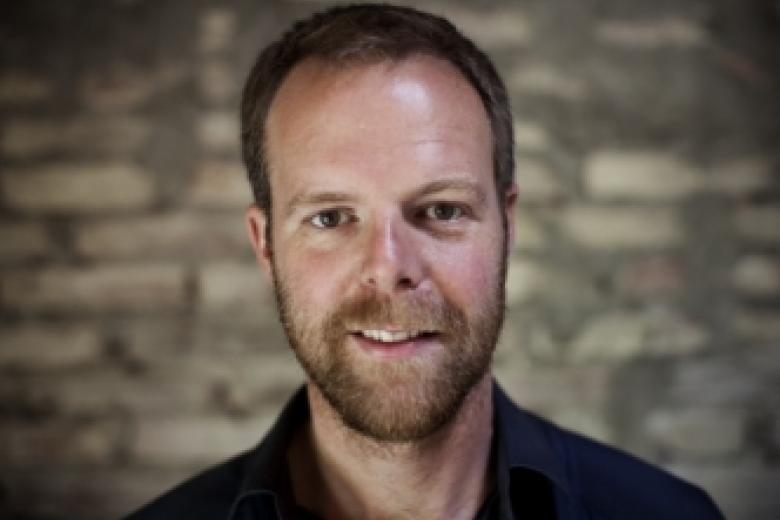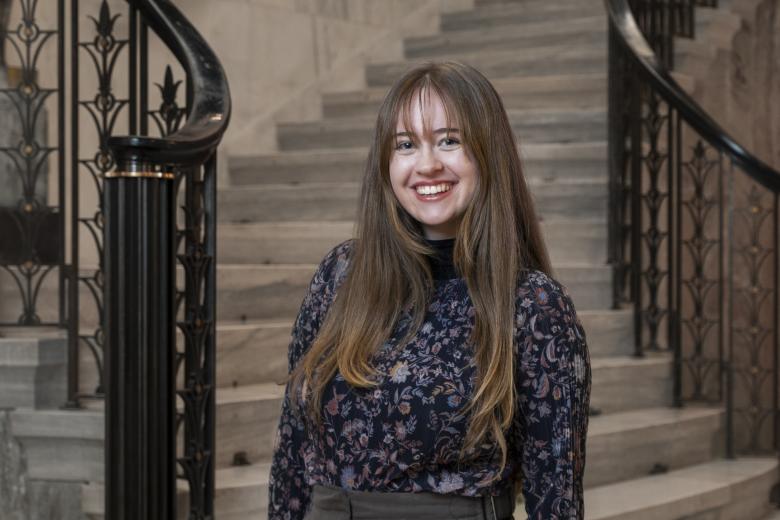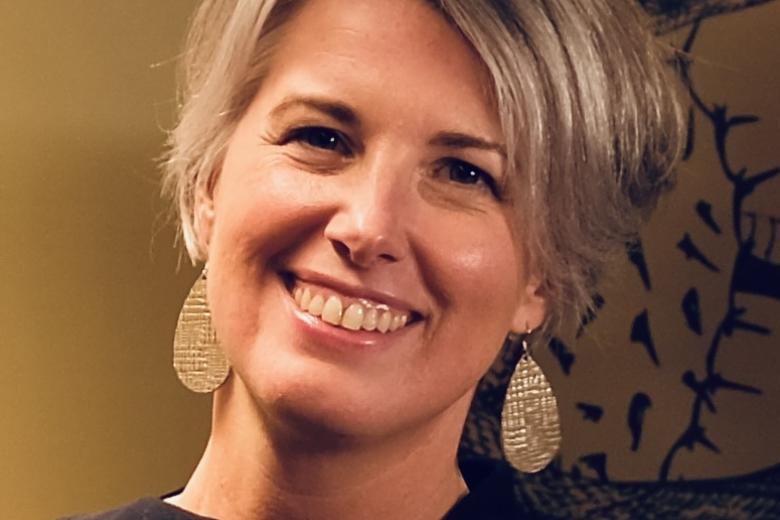Biker gangs & borders
Do criminal motorcycle gangs make opportune use of the national borders? One thing is certain: for authorities, the same borders currently function as a literal barrier to being able to respond to this adequately. PhD candidate Kim Geurtjens researches the cross-border nature of criminal motorcycle gangs in the Maas-Rhine Euregio. “I want to help raise as many barriers as possible for these biker gangs.”
No, she does not ride a motorcycle. Her interest comes from a criminological background, says Kim Geurtjens. On the wall behind her desk hangs a Harley Davidson patch, a club that falls outside of her research. On her shelves are books with many titles like Underworld on wheels, The Bandidos and The Fallen Angel. Geurtjens: “What’s interesting is how such closed criminal organisations, with a code of silence, can show themselves openly and disturb public order.”
These so-called ‘outlaw motorcycle gangs’ (OMGs) are motorcycle clubs that, due to criminal activities, are considered a threat to society and the rule of law. Typically, about 80 per cent of members have a criminal record and are often involved in various illegal markets: from public violence, drug crime and illegal possession of arms to extortion and murder. The names of gangs in the Netherlands are the Hell’s Angels, Bandidos, Satudarah and No Surrender. In Belgium, the Outlaws are also active, and Gremium can be added to that list for Germany.
Ideal operations base
Geurtjens’s research focuses on the cross-border nature of the criminal activities of OMGs. This is an assumption. She is investigating whether or not these biker gangs actually make advantageous use of the national borders. There are indications of that. For example, a chapter of Bandidos was recently established in the border town of Vaals in Belgium. “The question is whether the establishment of this OMG in a border region is incidental, because it’s beneficial for membership recruitment, for instance. Or is this chosen consciously to help with committing crimes, such as the transport and delivery of drugs? How big this problem is, is yet unknown.”
In the first year of research, Geurtjens conducted a literature search, a media analysis and exploratory discussions about the OMGs with government agencies in the Euregio. “This establishes the general perception of the biker gangs. In 2004, Hell’s Angels were murdered in Dutch Limburg. And more recently in 2015, weapons were found in a raid on the Bandidos, including a rocket launcher. In Belgian Limburg, members of the Outlaws were killed in 2011. In Germany, this occurs even more frequently. But there’s no accurate understanding of the extent of the crimes.”
Initiation
What Geurtjens has already noticed is that various OMGs like Satudarah and No Surrender are experiencing huge growth. According to her, this rapid growth has to do with easy access to membership. “The initiation period during which new members prove their loyalty to the club seems less important. It is said that they earn their colours (club patches) because they bring a certain expertise and an interesting network to the club. “In other words, their criminal record works as a CV. But what’s unique is that they have the freedom to quit after the initiation period. And some people do that, which used to be unthinkable.”
Crisis centres
Currently, Geurtjens has more insight into what the national borders mean to authorities. They literally function as a barrier. The reason for this is that the laws of the three countries have not been adequately aligned. For example, Germany and Belgium are behind when it comes to monitoring and management approaches to the OMGs. The Netherlands has more legal room for this. Next to that, Germany is again able to ban clubs based on their Associations Act (Verenigingswet), as was the case with Satudarah in 2015.
Within the regional information centres, security partners such as the government, police and tax offices, exchange information.
Geurtjens intends to focus the research on either a particular OMG, a national border or a specific type of crime, so she can do a crime pattern analysis or social networking analysis. In two years, she wants to have recommendations for a legal framework that is based on the three different national laws. “I try to identify what’s legally possible when it comes to collaboration.” She also wants to help improve the functioning of the current Euregional information centres. “And I would like to further develop and expand on the legalities of a Euregional barrier model. This type of model has been used by the Dutch government for a number of years to raise as many obstacles as possible for OMGs. For example, club life is hampered by refusing licenses, restricting restaurants and catering, or prohibiting ride outs.”
Centre of expertise
Geurtjens benefits greatly from being a PhD candidate at the interdisciplinary centre of expertise ITEM (Institute for Transnational and Euregional cross border cooperation and Mobility). All of the researchers are involved in cross-border issues such as pension law, social security, migration law and, in her case, security. “It’s an ideal environment for cross-border research. There’s a lot of information exchange from each person's own discipline. That's how you learn from one another. And sometimes the PhD candidates work together. For example, we recently wrote a collection of articles about the refugee crisis with contributions from our own area of interest.”
Kim Geurtjens (1993) works at the Faculty of Law in the Criminal Law and Criminology department. In 2016, she began her PhD research entitled ‘Research concerning outlaw motorcycle gangs and the integrated cross-border policy in the Meuse-Rhine Euregion’ at the Institute for Transnational and Euregional cross border cooperation and Mobility (ITEM), under the supervision of Prof. Hans Nelen and Dr Miet Vanderhallen.
Also read
-
Christian Ernsten awarded funding for project on recurating colonial-era collections
UnRest focuses on the historically significant yet deeply contested archives and artworks associated with Robert Jacob Gordon (1743–1795) – a Dutch military officer and explorer whose documentation of the Cape region shaped European knowledge of South Africa during the 18th century
-
Milou: “Studying is still often a privilege’’
Even outside the lecture hall, law student Milou Scholten is committed to justice. As the chair of Students for Equality, she campaigns for accessible education and equal opportunities for all students.
-
Tanne van de Kreeke – a former lawyer turned epidemiologist
According to Tanne, a former lawyer and now part-time Epidemiology student, the quality of research in general would improve if more people had a better understanding of epidemiology and how the field relates to research methodology. Tanne is clear about the benefits of the master’s programme.